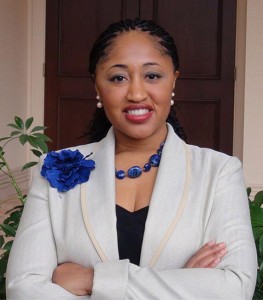 Community Matters is a biweekly opinion column. The views expressed are solely the author’s.
Community Matters is a biweekly opinion column. The views expressed are solely the author’s.
Last year I joined a coalition of women’s organizations as a part of Vision 2020, which aims to increase the number of women who participate in the political process by voting and through public service. Vision 2020 had a goal of a record-breaking number of eligible women voting in the November 2020 national elections.
Over the last several months, I have also been engaged in a number of discussions analyzing next steps for women and political participation after the centennial of the 19th amendment. In order to increase the number of registered women across the nation, women voting advocates in San Francisco, CA have challenged Arlington to participate in a pilot program and develop strategies to register every eligible female Arlington voter.
As a community that values civic participation, we should do more to consider why some decide not to register to vote. We should not congratulate ourselves on a high rate without considering why the people who aren’t registered have decided to opt out of this specific activity.
I would be curious to know whether not registering to vote is a predictor of other behaviors as well, and if these nonvoters have a particular perspective that we don’t generally consider when we focus on soliciting voters’ opinions. I addressed this in an October 2020 column, Community Matters: When “None of the Above” is Your Only Choice.
Arlington County does a great job of providing election information online. The General Assembly has expanded voter access by removing the witness signature requirement, making it easier to vote by mail and early in person absentee. Voter registration is often available at new citizen ceremonies. Organizations like the League of Women Voters of Arlington spend a large proportion of their resources on voter registration.
Despite these successes, we should consider whether we are being unintentionally exclusive.
We should do more to learn about the Arlington residents who are not registered to vote, and determine their concerns. Once we determine what their specific concerns are, we should try to address them. In Arlington, there are approximately 8,000 women who are over 18 and not registered to vote. If they are otherwise not eligible, we should determine that and strategize about how we can remove barriers.
More organizations should include voter registration in their civic engagement efforts. The State Board of Elections has facilitated voter registration training for groups, and provided QR codes for volunteers. We should also continue to diversify outreach efforts, and expand multicultural voter registration efforts.
Organizations should teach their members to address the behavioral barriers cited by nonvoters. Strategies could include discussing the specific impact certain local elected officials have on the issues they care about, as opposed to federal leaders, which are often vilified for partisanship. For those who feel they don’t know the issues well enough to vote, we should solicit their opinion on the key issues, and empower and value their perspective. We should also steer them towards resources which outline the candidates’ platforms.
While voter registration is not compulsory in the US, considering our nation’s history and current actions to suppress voter participation, Arlington should do even more to ensure that we have maximum participation in the electoral process. The work we do in Arlington to register that small remaining number of voters, could assist other localities in increasing voter registration and participation. If you are interested in participating in our pilot challenge program, please email [email protected].
Krysta Jones has lived in Arlington since 2004 and is active in local politics and civic life. This column is in no way associated with or represents any person, government, organization or body — except Krysta herself.

